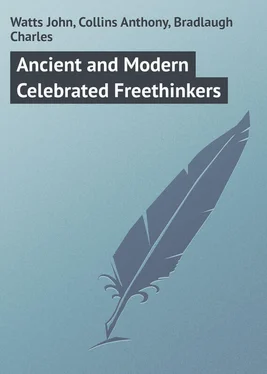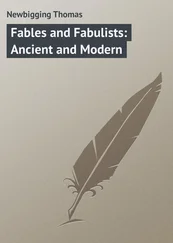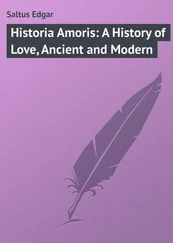Charles Bradlaugh - Ancient and Modern Celebrated Freethinkers
Здесь есть возможность читать онлайн «Charles Bradlaugh - Ancient and Modern Celebrated Freethinkers» — ознакомительный отрывок электронной книги совершенно бесплатно, а после прочтения отрывка купить полную версию. В некоторых случаях можно слушать аудио, скачать через торрент в формате fb2 и присутствует краткое содержание. ISBN: , Жанр: foreign_language, foreign_prose, на английском языке. Описание произведения, (предисловие) а так же отзывы посетителей доступны на портале библиотеки ЛибКат.
- Название:Ancient and Modern Celebrated Freethinkers
- Автор:
- Жанр:
- Год:неизвестен
- ISBN:http://www.gutenberg.org/ebooks/30200
- Рейтинг книги:5 / 5. Голосов: 1
-
Избранное:Добавить в избранное
- Отзывы:
-
Ваша оценка:
- 100
- 1
- 2
- 3
- 4
- 5
Ancient and Modern Celebrated Freethinkers: краткое содержание, описание и аннотация
Предлагаем к чтению аннотацию, описание, краткое содержание или предисловие (зависит от того, что написал сам автор книги «Ancient and Modern Celebrated Freethinkers»). Если вы не нашли необходимую информацию о книге — напишите в комментариях, мы постараемся отыскать её.
Ancient and Modern Celebrated Freethinkers — читать онлайн ознакомительный отрывок
Ниже представлен текст книги, разбитый по страницам. Система сохранения места последней прочитанной страницы, позволяет с удобством читать онлайн бесплатно книгу «Ancient and Modern Celebrated Freethinkers», без необходимости каждый раз заново искать на чём Вы остановились. Поставьте закладку, и сможете в любой момент перейти на страницу, на которой закончили чтение.
Интервал:
Закладка:
A.C.
SPINOZA
Baruch Spinoza, or Espinoza, better known under the name of Benedict Spinoza (as rendered by himself in the Latin language,) was born at Amsterdam, in Holland, on the 24th of November, 1632. There is some uncertainty as to this date, as there are several dates fixed by different authors, both for his birth and death, but we have adopted the biography given by Dr. C. H. Bruder, in the preface to his edition of Spinoza's works. His parents were Jews of the middle, or, perhaps, somewhat humbler class. His father was originally a Spanish merchant, who, to escape persecution, had emigrated to Holland. Although the life of our great philosopher is one full of interesting incidents, and deserves to be treated fully, we have but room to give a very brief sketch, referring our readers, who may wish to learn more of Spinoza's life, to Lewes's "Biographical History of Philosophy," Westminster Review , No. 77, and "Encyclopædia Brittannica." p. 144. His doctrines we will let speak for themselves in his own words, trusting thereby to give the reader an opportunity of knowing who and what Spinoza really was. One man shrinks with horror from him as an Atheist. Voltaire says, that he was an Atheist, and taught Atheism. Another calls him "a God-intoxicated man." We present him a mighty thinker, a master mind, a noble, fearless utterer of free and noble thoughts, a hard-working, honest, independent man; as one who, two centuries ago, gave forth to the world a series of thinkings which have crushed, with resistless force, the theological shell in the centre of which the priests hide the kernel "truth."
Spinoza appears in his boyhood to have been an apt scholar, and to have rapidly mastered the tasks set him by his teachers. Full of rabbinical lore he won the admiration of the Rabbi Moses Mortira, but the pupil rose higher than his master, and attempted to solve problems which the learned rabbis were content to reverence as mysteries not capable of solution. First they remonstrated, then threatened; still Spinoza persevered in his studies, and in making known the result to those around him. He was threatened with excommunication, and withdrew himself from the synagogue. One more effort was made by the rabbis, who offered Spinoza a pension of about £100 a-year if he would attend the synagogue more frequently, and consent to be silent with regard to his philosophical thinkings. This offer he indignantly refused. Reason failing, threats proving futile, and gold being treated with scorn, one was found sufficiently fanatic to try a further experiment, which resulted in an attempt on Spinoza's life; the knife, however, luckily missed its aim, and our hero escaped. At last, in the year 1660, Spinoza, being then twenty-eight years of age, was solemnly excommunicated from the synagogue. His friends and relations shut their doors against him. An outcast from the home of his youth, he gained a humble livelihood by polishing glasses for microscopes, telescopes, etc., at which he was very expert. While thus acquiring, by his own handiwork, the means of subsistence, he was studying hard, devoting every possible hour to philosophical research. Spinoza became master of the Dutch, Hebrew, German, Spanish, Portuguese, and Latin languages, the latter of which he acquired in the house of one Francis Van den Ende, from whom it is more than probable he received as much instruction in Atheism as in Latin. Spinoza only appears to have once fallen in love, and this was with Van den Ende's daughter, who was herself a good linguist, and who gave Spinoza instruction in Latin. She, however, although willing to be his instructress and companion in a philogical path, declined to accept his love, and thus Spinoza was left to philosophy alone. After his excommunication he retired to Rhynsburg, near the City of Leyden, in Holland, and there studied the works of Descartes. Three years afterwards he published an abridgment of the "Meditations" of the great father of philosophy, which created a profound sensation. In an appendix to this abridgment were contained the germs of those thinkings in which the pupil outdid the master, and the student progressed beyond the philosopher. In the month of June, 1664, Spinoza removed to Woorburg, a small village near the Hague, where he was visited by persons from different parts, attracted by his fame as a philosopher; and at last, after many solicitations he came to the Hague, and resided there altogether. In 1670 he published his "Tractatus Theologico-Politicus." This raised him a host of opponents; many writers rushed eager for the fray, to tilt with the poor Dutch Jew. His book was officially condemned and forbidden, and a host of refutations (?) were circulated against it. In spite of the condemnation it has outlived the refutations.
Spinoza died on the 21st or 22nd of February, 1677, in his forty-fifth year, and was buried on the 25th of February at the Hague. He was frugal in his habits, subsisting independently on the earnings of his own hands. Honorable in all things, he refused to accept the chair of Professor of Philosophy, offered to him by the Elector, and this because he did not wish to be circumscribed in his thinking, or in the freedom of utterance of his thoughts. He also refused a pension offered to him by Louis XIV, saying that he had no intention of dedicating anything to that monarch. The following is a list of Spinoza's works: – "Principiorum Philosophise Renati Descartes;" "Tractatus Theologico-Politicus;" "Ethica;" "Tractatus Politi-cus;" "De Emandatione Intellectus;" "Epistolæ;" "Grammaticus Hebracæ," etc. There are also several spurious works ascribed to Spinoza. The "Tractatus Politicus" has been translated into English by William Maccall, who seems fully to appreciate the greatness of the philosopher, although he will not admit the usefulness of Spinoza's logic. Maccall does not see the utility of that very logic which compelled him to admit Spinoza's truth. We are not aware of any other translation of Spinoza's works except that of a small portion of his "Ethica," by Lewes. This work, which was originally published in 1677, commenced with eight definitions, which, together with the following axioms and propositions, were reprinted from the Westminster Review in the Library of Reason : —
DEFINITIONS.
I. By cause of itself I understand that, the essence of which involves existence: or that, the nature of which can only be considered as existent.
II. A thing finite is that which can be limited (terminari potest) by another thing of the same nature — ergo , body is said to be finite because it can always be conceived as larger. So thought is limited by other thoughts. But body does not limit thought, nor thought limit body.
III. By substance I understand that which is in itself, and is conceived per se – that is, the conception of which does not require the conception of anything else as antecedent to it.
IV. By attribute I understand that which the mind perceives as constituting the very essence of substance.
V. By modes I understand the accidents (affectiones) of substance; or that which is in something else, through which also it is conceived.
VI. By God I understand the being absolutely infinite; that is, the substance consisting of infinite attributes, each of which expresses an infinite and eternal essence.
Explication , I say absolutely infinite, but not in suo genere ; for to whatever is infinite, but not in suo genere , we can deny infinite attributes; but that which is absolutely infinite, to its essence pertains everything which implies essence, and involves no negation.
VII. That thing is said to be free which exists by the sole necessity of its nature, and by itself alone is determined to action. But that is necessary, or rather constrained, which owes its existence to another, and acts according to certain and determinate causes.
Читать дальшеИнтервал:
Закладка:
Похожие книги на «Ancient and Modern Celebrated Freethinkers»
Представляем Вашему вниманию похожие книги на «Ancient and Modern Celebrated Freethinkers» списком для выбора. Мы отобрали схожую по названию и смыслу литературу в надежде предоставить читателям больше вариантов отыскать новые, интересные, ещё непрочитанные произведения.
Обсуждение, отзывы о книге «Ancient and Modern Celebrated Freethinkers» и просто собственные мнения читателей. Оставьте ваши комментарии, напишите, что Вы думаете о произведении, его смысле или главных героях. Укажите что конкретно понравилось, а что нет, и почему Вы так считаете.












